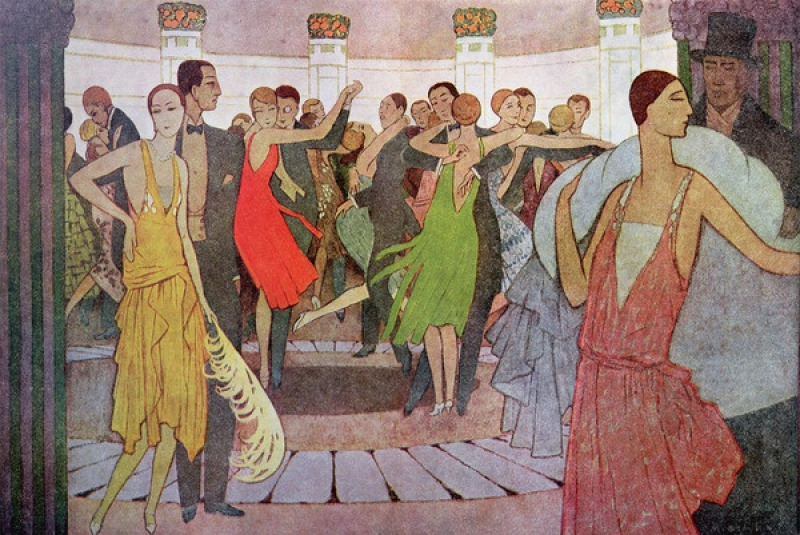Introduction to 1920s Women’s Fashion
The 1920s marked a significant shift in women’s fashion, reflecting the cultural and social changes of the era. The decade saw women stepping out of their traditional roles and embracing new styles that symbolized freedom and modernity. The women’s Clothing of the 1920s was characterized by a departure from the corseted silhouettes of the past, with a focus on comfort and ease of movement.

The Rise of the Flapper
A defining figure of the 1920s was the flapper, a young woman who challenged societal norms with her free-spirited behavior and fashion choices. This new archetype influenced the design of women’s clothing of the 1920s, which included short skirts, bobbed hair, and a penchant for bold accessories. The flapper’s influence can be seen in the work of fashion designers like Coco Chanel, who embraced the androgynous look and the concept of practical elegance.

Key Elements of 1920s Fashion
The essence of women’s clothing of the 1920s was a combination of innovation and practicality. Key elements included the drop-waist dress, which allowed for a more relaxed fit, and the chemise dress, a loose-fitting, sleeveless gown that was easy to wear. Fabrics such as silk, crepe, and georgette were favored for their fluidity and lightness. Additionally, the use of intricate embellishments like beads and sequins added a touch of glamour to the otherwise simple designs.

Influence of Art and Culture
The 1920s was a period of artistic and cultural renaissance, with movements like Art Deco and the Harlem Renaissance shaping the aesthetics of the time. These influences were evident in the geometric patterns and bold colors found in women’s clothing of the 1920s. The fashion of the era was not just about clothing but also about expressing one’s identity and embracing the creativity of the period.

Hollywood and the Fashion Industry
The glamour of Hollywood played a crucial role in popularizing the styles of the 1920s. Silent film stars like Clara Bow and Louise Brooks became fashion icons, with their on-screen attire influencing the designs of women’s clothing of the 1920s. The fashion industry also saw the rise of department stores and mail-order catalogs, making these fashionable items more accessible to the general public.

Conclusion
The women’s clothing of the 1920s was more than just a fashion statement; it was a reflection of the changing times and the evolving role of women in society. As we explore the styles of this transformative decade, we gain a deeper understanding of the cultural significance behind these garments and the women who wore them.







I’m a fashion influencer, and I think the article does a great job of showcasing the social habits of 1920s women through their clothing. The fashion of that era was a reflection of their active social lives and desire for self-expression.
As a young professional, I find the 1920s fashion to be both nostalgic and aspirational. The bold accessories and short skirts were a bold statement of confidence and freedom, qualities I strive for in my own life.
As a fashion student, I find the article’s focus on the practicality of 1920s women’s clothing to be particularly insightful. The emphasis on comfort and ease of movement was a significant departure from previous fashion norms.
As a professional dancer, I’m drawn to the fluidity and ease of movement described in the 1920s women’s clothing. The chemise dress, in particular, sounds like it would be perfect for my performances.
As a young woman in her 20s, I love the idea of flappers challenging societal norms. The article’s portrayal of their fashion choices as a form of rebellion is inspiring. It makes me want to explore this era’s style more deeply.